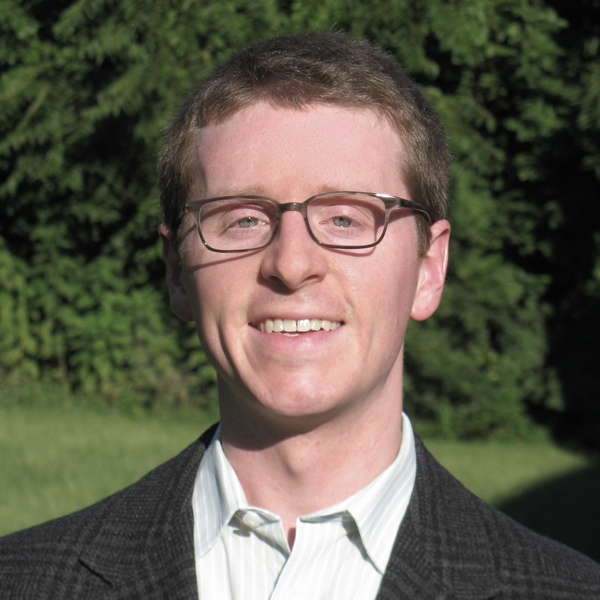Building largely from the thesis he developed in his 2018 The Sacrality of the Secular: Postmodern Philosophy of Religion, Bradley Onishi in his interview with David McConeghy outlines the rejection of the secularization thesis in the philosophy of religion, as well as its implications for the study of religion more broadly. For those not familiar, the secularization thesis is the contention emerging from the work of Max Weber, which insists that modernism’s trajectory toward greater rationalism will invariably lead to greater secularization. Along with a chorus of scholars in fields ranging from the philosophy of religion to behavioral economics, Onishi makes a clear case for the heuristic futility of the secularization thesis, primarily because it overstates the modern subject as a rational maximizer.
In this conversation, Onishi’s original contribution emerges not from his critique of the secularization thesis, but rather in his ability to diagnose what the failure of the secularization thesis implies for the delineation of subdisciplines in the study of religion. Put simply, Onishi rightly notes that scholars of religion conceptualized the ideological distinctions between the fields of the continental philosophy of religion and philosophical theology prior to understanding the limitations of the secularization thesis. More than a trivial historical observation, Onishi’s insight cogently explains that several of the now-defunct core premises of the secularization thesis remain present in how scholars of religion justify why it is that philosophers of religion must not learn from the religious traditions they study—at least without falling prey to the common critique of becoming a crypto-theologian.
Though Onishi is himself not guilty of this, his analysis raises one of the most persistent concerns I have held for the narration of religious affiliation: namely, the insistence that many people who are not religious, upon closer examination, hold the same core attitudes that are the hallmark of religious experience. Framed otherwise, though I agree with Onishi’s critique of the secularization thesis, there remains the problem of the precedent that the secularization thesis poses for how the conversation regarding secularization functions in the first place. That is, if one identifies the secularization thesis as the status quo against which contemporary scholars of religion are to rebel, then even the most critical and generative analysis will leave secularism in a default position of hostility against religion. To be clear, this is not to suggest anything about compatibility models for science and religion, such as from Ian Barbour. Rather, what is consequential in this conversation is the how such a point of departure narrates the direction of the ideological hostility itself.

Put simply, Onishi’s analysis of post-secularity leaves me with the lingering suspicion that scholars of religion still retain the understanding of secularity as encroaching upon the territory of religion, and not the other way around. On this point, I must be careful not to overstate my concern. It is not so much that I view Onishi as arguing for a problematic understanding of the religious as prior to secularization; it is abundantly clear that his intention is more accurately to destabilize a facile binary between the sacred and the secular, which includes offering a more generous possibility for secular persons to participate in various forms of enchantment that were previously monopolized by faith traditions.
The problem as I see it is that this method of framing the evolving relation of secularity to religion presumes that enchantment is a primordially religious experience, which religious persons generously share with secularists who were just persecuting them. Allow me to explain.
Though I recognize that such a reference may risk placing me firmly back within a modernist framework where the secularization thesis reigns unchecked, on this matter I am continually haunted by one of the most compelling charges that Freud offers for conceptualizing the relation between religious and scientific Weltanschauungen—a bit of text that I foregrounded a recent volume with. In his New Introductory Lectures on Psycho-Analysis, Freud interrogates the relation between secular science and the religious worldview in the following way.
The struggle of the scientific spirit against the religious Weltanschauung is, as you know, not at an end: it is still going on to-day under our eyes. […] Religion may not be critically examined because it is the highest, most precious, and most sublime thing that the human spirit has produced, because it gives expression to the deepest feelings and alone makes the world tolerable and life worthy of men [sic]. We need not reply by disputing this estimate of religion but by drawing attention to another matter. What we do is to emphasize the fact that what is in question is not in the least an invasion of the field of religion by the scientific spirit, but on the contrary an invasion by religion of the sphere of scientific thought. Whatever may be the value and importance of religion, it has no right in any way to restrict thought—no right, therefore, to exclude itself from having thought applied to it.[1]
One does not have to accept Freud’s critical vision of religion qua wish fulfillment to be persuaded by his account of the relation between secular science—of which Freud believes psychoanalysis is a part—and religion. More modestly, the historical priority of religion’s dominance should not suggest that any conflict with secularism is always a form of secular aggression as understood by the secularization thesis. Rather, Freud suggests, it is completely possible that science and secular persons are merely asserting their right to have space to breathe and carry out their work without impedance from religion. Any claim that secularism is encroaching upon religion is nothing more than a deluded persecution complex.
I offer the Freudian critique not to concern troll Onishi and McConeghy’s genuinely riveting interview. I broadly agree with Onishi’s conviction that being a secular person does not make one a secularist, that it is possible to hold an enchanted secularity, and that the decolonization of the philosophy of religion will be vital for clarifying these possibilities. My question, more concretely, is how we as philosophers of religion can create space for secular persons to be secular, without the presumption that any claim to meaning and enchantment is somehow co-opting religion. Practically speaking, this has little to do with secular persons feeling they have permission to be enchanted; anecdotally speaking, no secular person in my world feels particularly compelled to get approval from religion before they engage in a ritual practice, for example. Rather, as a philosopher of religion who is also not afraid to learn from faith traditions—some of which I unapologetically participate in—I am more specifically irked by scholars of religion such as Paul Tillich who narrate secular persons as facing a pathetic ultimatum: acquiescence to the meaningful domain of religion, or resignation to nihilism.
This is, naturally, a deplorable framing—one which I know Onishi and McConeghy would also reject. My suspicion, simply, that there is likely a parallel problem between the task of rejecting the secularization thesis, and the tired problem of overcoming metaphysics in the continental philosophy of religion. In other words, once the conversation is framed in those terms, even the most creatively valiant efforts to subvert them will only ever reaffirming their flawed premises. If my suspicion is correct—it may not be—then this is in no way an indictment of Onishi’s project. Rather, it is a worthwhile struggle with which I sympathize. I am grateful for his labor here.
[1] Sigmund Freud, New Introductory Lectures on Psycho-Analysis, trans. and ed. James Strachey (New York: W. W. Norton, 1965), 209-10.



